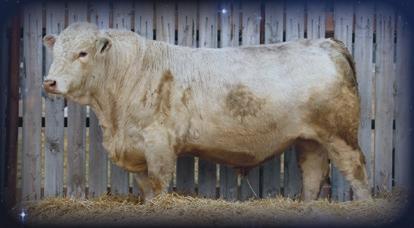
2 minute read
Expanding Smart Farm Capacity in Manitoba
DR. MARY-JANE ORR, MBFI GENERAL MANAGER

Smart farming is a growing concept expanding on the technology developments of precision agriculture applications including remote sensing field mapping, auto-steer, and variable rate crop inputs. A Smart Farm in principle refers to making farm management decisions using integrated technologies such as Internet of Things (IoT), artificial intelligence (AI), robotics, and variety of real-time sensors with the goal of optimizing production efficiencies and lowering labour requirements.
Components of a Smart Farm can be broadly grouped as either sensors, internet connectivity tools, soft ware platforms, location tracking, robotics, or data analytics. The concept of IoT is to transmit data from remotely placed sensors to connect with the internet. Creative solutions are rapidly being developed to increase connectivity through cellular, satellite, Wi-Fi, or low-power wide-area network (LPWAN) With internet connectivity, the data from the sensors is processed through soft ware platforms to automate processes or generate meaningful data for farmers to make management decisions.

Smart Farms provide on-farm demonstration to showcase how new technologies can be integrated into agricultural production. Creation of specialized sensors can address a broad range of challenges in agricultural production. For example, in beef cattle production sensors can be put in place to signal frozen winter waterers, low summer water levels, or monitor individual animal health and reproductive status. Th rough farm scale validation of commercially available products or testing of newly developed solutions, Smart Farms can inform the return on investment and provide hands-on learning opportunities. Targeted evaluation provides unbiased third-party assessment of available technology solutions.
At Manitoba Beef & Forage Initiatives (MBFI) significant investment has been made in livestock and crop monitoring equipment through the Canadian





Agricultural Partnership five-year grant. The capital grant funding has been leveraged into several applied research and demonstration projects. Specifically, for creating and expanding connectivity across the MBFI farm stations, we are excited to be collaborating with Assiniboine Community College Communications Engineering Technology (CET) program. In the winter term of 2021-2022 CET students Ryan Kopytko and Mike Goertzen completed Capstone applied research projects with instructor Grant Nicol to design IoT and Wi-Fi access points across both MBFI farm stations and First Street Pasture. Additional project details are shared in The Assiniboine Effect Fall 2022 Alumni Magazine.
Some additional examples of Smart Farm solutions in use at MBFI include, SmartFeed Pro trailers, Moonsyst Smart Rumen Bolus, Onecup AI cameras, Allflex SenseHub ear tags, FarmSimple Herd Hand, GPS ear tags, weather stations, pasture cameras, and crop –livestock databases.
Building on our early successes, MBFI is thrilled to join the Pan-Canadian Smart Farm Network led by Olds College (Olds, Alberta). The network was launched in 2021 with funding from the Canadian Agri-Food Automation and Intelligence Network. Additional members include Glacier FarmMedia Discovery Farm, Lakeland College, and University of Saskatchewan Livestock and Forage Centre of Excellence. The network is committed to sharing expertise and data generated across the network to lower barriers for farmers and industry to adopt or develop technology solutions. MBFI is keen to learn from member experiences, participate in the collaborative framework, and share our Manitoba beef and forage producer focused perspective.
For more information on how MBFI makes use of agricultural technologies or to start a conversation please email MBFI at information@mbfi.ca or call at 204-761-3300.















